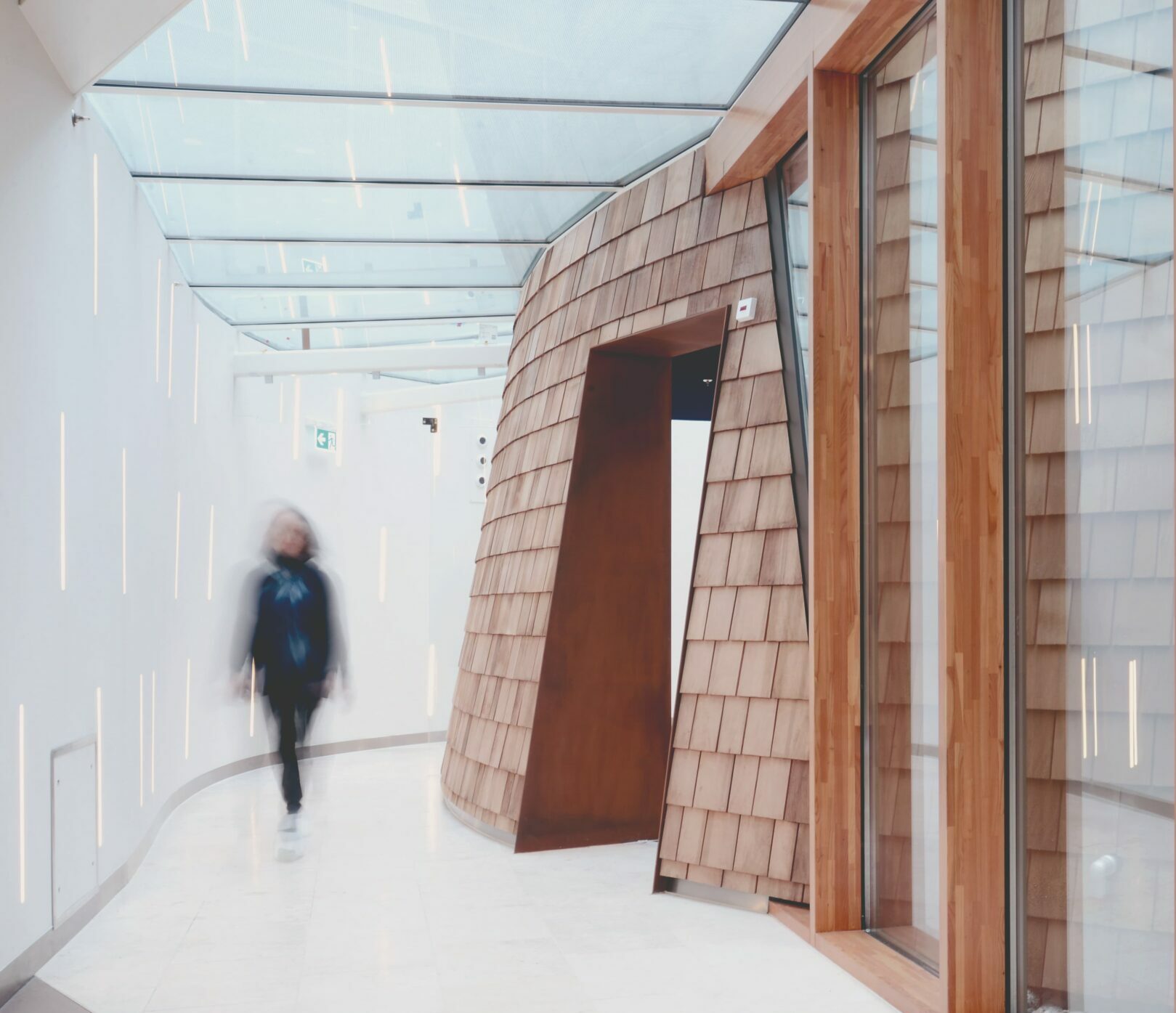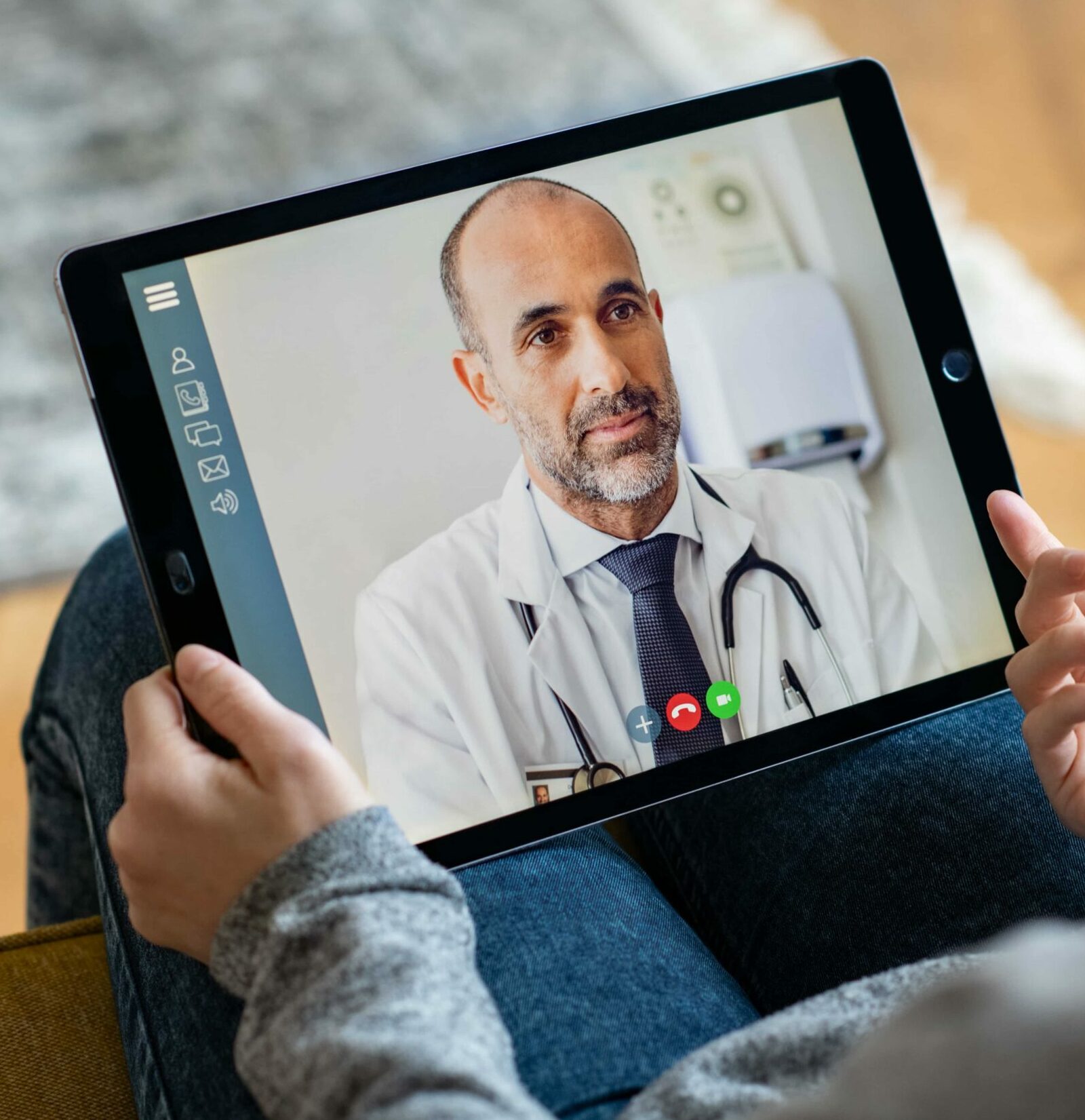Increasing prosperity, demographic shifts and breakthroughs in medical technology all drive the increased demand for and quality of care. Digitalisation is leading to ground-breaking developments in health diagnostics and the treatment of patients using artificial intelligence (AI), big data and e-health. In the future, doctors will operate more frequently from control rooms, offering diagnoses, monitoring and consultations virtually.
As hospitals shift focus from care to cure, the installation design is instrumental in creating a future-proof, flexible and resilient hospital building that supports future modifications, extensions or changes in functionality.


Treatment room #3
Here’s where Richard and Carol video-call online for fertility consultation
Health care developments may change the entire function of a hospital in the future. Ambitions for the new day treatment and fertility research centre at the Reinier de Graaf Hospital in the Netherlands pivot around being future-proof, sustainable and smart. Deerns designed the future-proof building installations, smart building data infrastructure and sustainable energy supply to ensure the departments and rooms can easily change function based on shifting demands. Developments in healthcare, such as e-health and connected care, could lead to less use of the facility. The outpatient department could then be transformed into an office building or apartments for assisted living.

